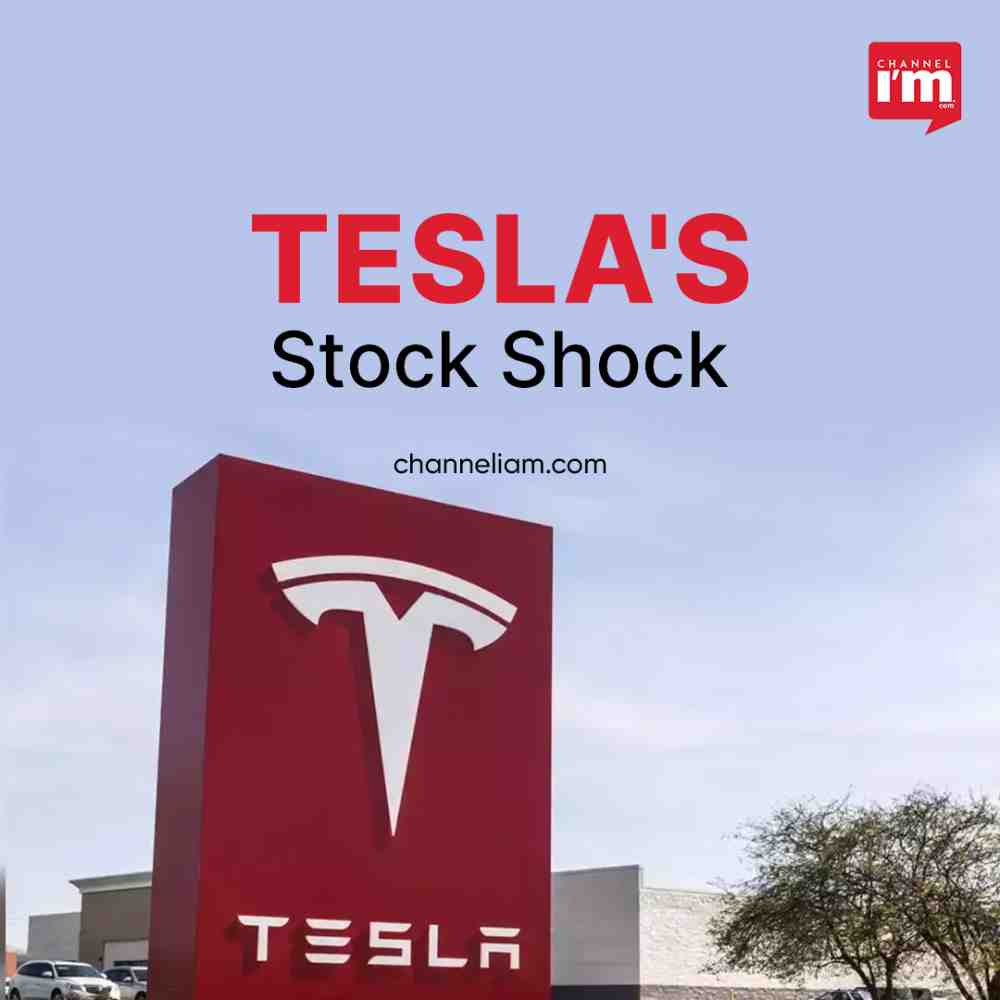
Tesla Inc. has witnessed a substantial and alarming decline in its share value, resulting in a loss of nearly one-fifth of its market capitalization, equivalent to a staggering $145 billion, within a mere two-week span. This downturn is primarily attributed to mounting concerns regarding the future demand for electric vehicles, as reported by Bloomberg. While the entire EV industry is grappling with uncertainties, Tesla’s decline stands out prominently, with its shares plummeting over 17 percent since the October 18 report. This article delves into the factors behind Tesla’s stock drop and the broader challenges facing the EV sector.
EV Industry Concerns

The downward trajectory for Tesla and the EV industry at large commenced earlier this month when Tesla revised down its growth expectations during its third-quarter earnings call. This move was swiftly followed by pessimistic comments from various global automakers and Wall Street analysts, amplifying concerns about the sector’s future.
Furthermore, battery manufacturer Panasonic Holdings Corp. and chipmaker ON Semiconductor Corp. recently voiced their apprehensions about the EV industry. These warnings have cast a shadow over stocks in the United States’ automotive sector, which is already contending with labour union negotiations regarding wage issues.
High Stakes for Tesla

As a dedicated EV manufacturer with a substantial valuation, Tesla faces significant stakes. Its share price, although deemed expensive by some, is intricately linked to its capacity to sustain its dominant position in the EV market and uphold its profit margins. Nonetheless, as demand for EVs levels off and Tesla’s aggressive price reductions appear to lose their efficacy in stimulating consumer interest, investors are growing increasingly apprehensive, thereby contributing to the sharp downturn in Tesla’s share price.
Resurgence Amid Challenges
Amid these challenges, Tesla experienced a noteworthy resurgence during midday trading in New York. This revival can be attributed to the company’s successful defense against claims that its Autopilot technology was responsible for a fatal accident that occurred four years ago. Consequently, Tesla’s shares concluded with a 1.8 percent increase, closing at $200.84 on Tuesday, October 31.
Challenges Abound
Morgan Stanley analyst Adam Jonas has highlighted a crucial issue plaguing the EV industry—a capital-intensive sector investing in unproven EV strategies amidst escalating costs, declining prices, rising interest rates, and weakening demand. Investors are beginning to question whether the billions funnelled into EV development may not contribute to value but instead prove to be detrimental.

Moreover, the overall outlook for the automobile industry has darkened due to high interest rates, which have elevated the cost of car ownership. When coupled with rising inflation, consumers are finding it increasingly challenging to afford major purchases, with EVs taking the initial hit due to their underdeveloped charging infrastructure.
Tesla’s recent stock decline, erasing a substantial portion of its market capitalization, has sent shockwaves throughout the automotive industry, reflecting broader concerns about the future of electric vehicles. As the EV industry grapples with uncertainties, Tesla, as a prominent player, faces significant challenges in maintaining its market dominance. Whether it can weather the storm and adapt to the changing landscape of the EV market remains to be seen, but the recent fluctuations in Tesla’s stock price serve as a stark reminder of the volatility inherent in this rapidly evolving sector.
